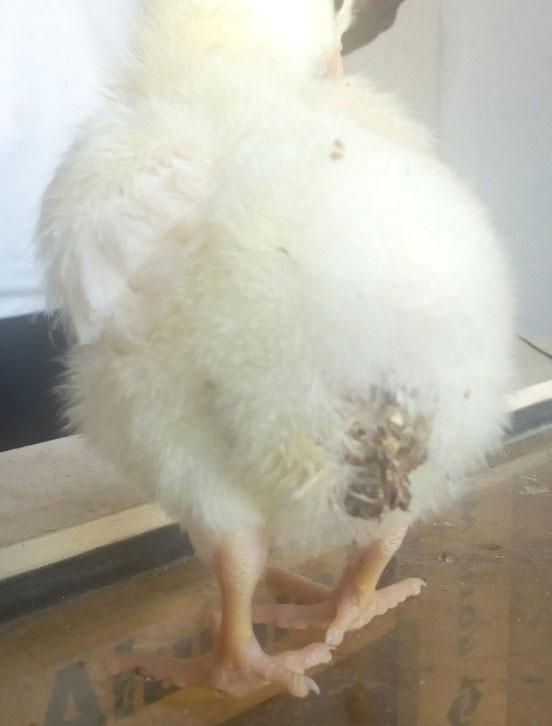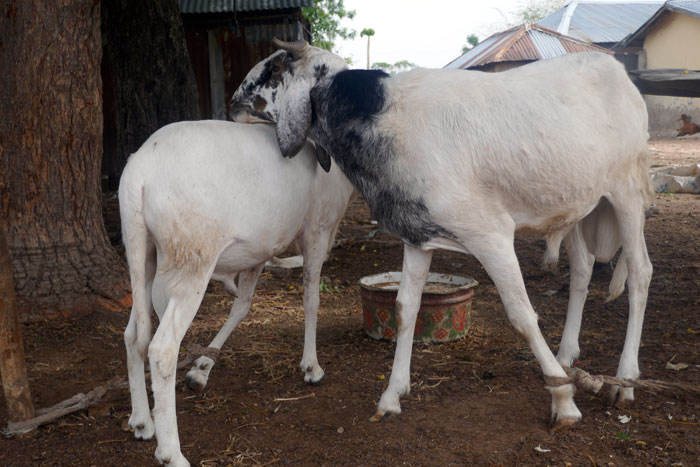Pasty butts
Pasty butts are a fairly common sight to most poultry keepers, it can easily be treated and prevented once you identify the underlining cause.
If prompt action is not taken it can lead to the eventual death of the baby chick.
Pasty butts is the inability of the baby chicks to excrete their poop smoothly, the feces get stuck in the baby chicks vent.
Causing the baby chicks droppings to accumulate on the downy feathers around the vent.
This will eventually cause pasting over and will prevent the baby chick from defecating any further.
Pasty butt is prevalent with chicks that are hatched using an incubator and chicks that undergo stress and are transported over some time from hatchery to their various destinations.
Whenever you order for your chicks, always be on the lookout for the pasty butt to take immediate action to avoid loss especially in the first few days of their life.
Recommended for you:
Broiler Farming, How to engage in profitable production.
Noiler Farming In Nigeria, the New Game Changer
6 Important Lessons I Learned About Raising Noiler Chickens
What causes pasty butts?
- Overheating, a lot of farmers make the mistake of overheating their baby chicks during brooding. It is strongly advised that you use a good thermometer and observe your chick’s behavior to avoid overheating.
- Pasty Butt is usually caused by stress as a result of a rigorous journey from the hatchery to their destination.
- In some rare situations, the culprits could be Viral and bacterial infections using good antibiotics such as enrofloxacin for laying hens (Chicks) could improve the situation.
- Inappropriate feeding patterns could lead to pasty butts. The best practice is to give your baby chick’s water and some good multivitamins to reduce stress as a result of shipping before feeding them.

How to prevent pasty butts
- Always strive to provide a conducive brooding temperature for your baby chicks, not too hot not too cold, observe their behavior. Also heck brooding day old chicks.
- Provide your baby chicks a bit of cornmeal or ground raw oatmeal mixed with their regular chick feed will help in ameliorating pasty butts.
- provide chick-sized grit if you feed your chicks anything other than chick feed, but the best feed is the starter feed, buy high-quality feed from a reputable feed mill.
- Always ensure that the litter is clean, fresh, and dry and their coop is well aerated with a good ventilation system.
- add the probiotic powder to the feed to balance gut bacteria and help prevent diarrhea
- Avoid unnecessary stress from children, pets, and other farm animals.
- Encourage your chicks to drink enough water for proper hydration in order to prevent pasty butts.
You might enjoy READING: Broiler farming how to engage in profitable farming
Treatment
Immediately your chicks arrive be on the lookout for pasty butts. So that you can quickly resolve it. Since chicks are not able to regulate their body temperature at this tender age.
Also READ: Brooding Day old chicks and the general management
They can get chilly and easily die. That is why you are advised to always use warm water and cotton swab which greatly reduces the area moistened.
You may need the following materials
- Warm water
- Towel
- cotton swab
- Small pair of scissors
- Vaseline, vegetable, or olive oil
- Use some warm water and a wet small towel, gently soften and remove the dried poop gradually not to hurt the baby chick.
- You will be patient because this takes some time. Don’t pull the sticky feces by force you could injure the baby chick.
- Once the vent is cleared, dab a bit of oil or Vaseline around the vent area to prevent further clogging.
- Continue to monitor the afflicted chick suffering from pasty butts for the first few days to be sure the condition doesn’t recur.
Recommended for you:
Brooding Day Old Chicks and the General Management.
Broiler Heat Stress Management, How To Effectively Manage it.
7 Important Points to Consider Before Placing an Order for Baby Chicks

READ: Coccidiosis Disease of the lazy farmer
- Since chicks are not able to regulate their body temperature and can quickly get chilled and die if they get wet, you don’t want to bathe the chick. Just wet right around the vent area.
- Use a red heat lamp to curtail pecking when you have pasty butts present. Sometimes a few feathers are accidentally removed when taking care of pasty butt. The red light helps to prevent other baby chicks from pecking at the chick’s bottom out of natural curiosity.








